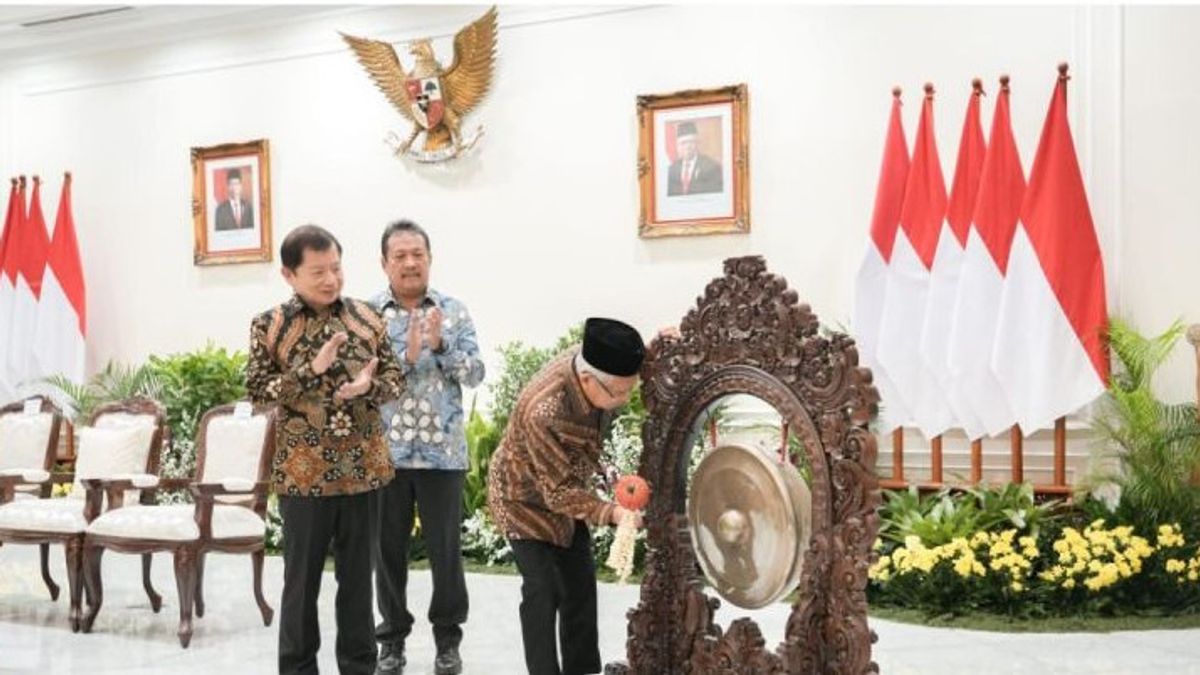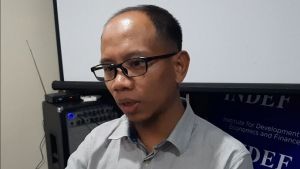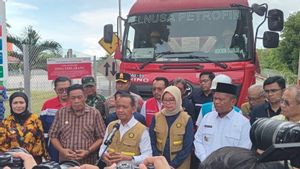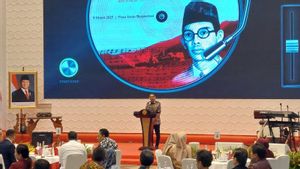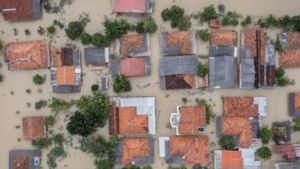JAKARTA - The Ministry of National Development Planning/National Development Planning Agency (PPN/Bappenas) reported the implementation of the Indonesian Biodiversity Strategy and Action Plan (IBSAP) 2025-2045 developing various financial solutions.
"Currently, there are also financial solutions that have been developed, including various sukuk which will certainly cover biodiversity financing," said Deputy for Maritime Affairs and Natural Resources of the Ministry of National Development Planning/Bappenas Vivi Yulawati as reported by ANTARA, Thursday, August 8.
The first mentioned financial solution aims to institutionalize the sukuk funding access process for caution through providing technical support to initiators and expanding cooperation with other ministries interested in biodiversity projects.
Second, ecological fiscal transfer (EFT) which is intended to support facilitation of the implementation of ecological fiscal transfers in local governments, especially from the provincial government to the district and/or from the district to the village level.
Third, the institutealize result-based budget tracking for biodiversity expenditure which aims to move the ongoing caution expenditure assessment work from manual to online system to encourage prudential expenditure institutions into the performance-based budgeting system.
Next is the development of a solution for native-related disclosure to create a system and framework that integrates environmental considerations into reporting and decision making.
The last solution is the luxury-based fund for biodiversity which aims to expand the work of exploring religious-based funding initiatives. This we are one of the countries that is quite religious, so that these religious-based funding sources of course how we will direct it to support the management of biodiversity," he said.
As an effort to increase prudence funding and improve spending quality, several strategies that will be prioritized are a significant increase in funding and careful spending through developing innovative financing solutions, strengthening policies and institutions to increase the flow and effectiveness of prudence funding, then increasing private funding through mixed financing schemes and developing market-based financial solutions.
Then also the expansion of funding sources through the development of bioeconomics, increasing access and flow of international funding, including through the Global Biodiversity Framework Fund (GBF Fund), as well as developing incentives and disincentives for activities related to the management of biodiversity.
All of these strategies will be met by a number of financial solutions options contained in IBSAP 2025-2045.
Until now, collaboratively, other financial solutions are also being studied, so the opportunity to determine additional mechanisms is still open.
Based on a Financial Needs Assessment (FNA) study, a minimum of IDR 167.91 trillion or 11.58 billion US dollars (US) is needed for five years to implement eight national targets (TN) in IBSAP 2015-2020. The total funding needs during this period reached around IDR 33 trillion per year.
Budget tracking results show that the distance (gap) of funding in the previous period's IBSAP was still quite large, which was 74 percent.
With the update of the IBSAP 2025-2045 document, the results of the government's initial identification of the funding needs for the implementation of 14 of 20 TN IBSAP 2025-2045 which reached IDR 70.69-IDR 75.53 trillion per year.
Referring to the funding framework in the document, it is said that meeting this cost requirement cannot depend on the government considering the limited State Budget (APBN) and Regional Revenue and Expenditure Budget (APBD), other sources of funding are needed, including innovative funding and private involvement.
Kini, sumber pendanaan pengelolaan kehati masih berfokus pada pendanaan publik dari APBN dan APBD.
Public funding sources for careful management generally come from Foreign Loans and/or Grants (PHLN), tax revenues, and Non-Tax State Revenue (PNBP).
SEE ALSO:
The direction of government policies related to sustainable development recommends a transition from the concept of funding to the concept of financing (funding to financing) by encouraging the entry of private capital, both through blended finance solutions and non-mixed financing, as well as infrastructure/public assets investment programs involving the private sector, as well as utilizing market-based solutions if possible.
To close the financing gap, the IBSAP funding strategy is to enlarge the source of prudent funding through private funding as the main source, followed by public and private cooperation, as well as public funding.
This effort was made to achieve sustainable liver funding needs.
The English, Chinese, Japanese, Arabic, and French versions are automatically generated by the AI. So there may still be inaccuracies in translating, please always see Indonesian as our main language. (system supported by DigitalSiber.id)
